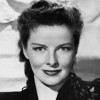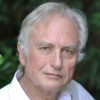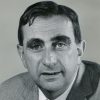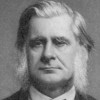I’m an atheist, and that’s it. I believe there’s nothing we can know except that we should be kind to each other and do what we can for other people.
Katharine Hepburn (1907-2003) American actress
“Kate Talks Straight,” interview by Myrna Blyth, Ladies’ Home Journal (1991-10)
(Source)
Quotations about:
agnosticism
Note not all quotations have been tagged, so Search may find additional quotes on this topic.
It is often said […] that although there is no positive evidence for the existence of God, nor is there evidence against his existence. So it is best to keep an open mind and be agnostic. At first sight that seems an unassailable position, at least in the weak sense of Pascal’s wager. But on second thoughts it seems a cop-out, because the same could be said of Father Christmas and tooth fairies. There may be fairies at the bottom of the garden. There is no evidence for it, but you can’t prove that there aren’t any, so shouldn’t we be agnostic with respect to fairies?
Insofar as I may be heard by anything, which may or may not care what I say, I ask, if it matters, that you be forgiven for anything you may have done or failed to do which requires forgiveness. Conversely, if not forgiveness but something else may be required to insure any possible benefit for which you may be eligible after the destruction of your body, I ask that this, whatever it may be, be granted or withheld, as the case may be, in such a manner as to insure your receiving said benefit. I ask this in my capacity as your elected intermediary between yourself and that which may not be yourself, but which may have an interest in the matter of your receiving as much as it is possible for you to receive of this thing, and which may in some way be influenced by this ceremony. Amen.
Roger Zelazny (1937-1995) American writer
“Agnostic’s Prayer,” Creatures of Light and Darkness (1969)
(Source)
Used by a character to shrive a person about to commit a public suicide. Also called the "Possibly Proper Death Litany."
The idea of God that I absorbed was that it would be wonderful if He existed: We needed Him desperately but had not seen Him in many thousands of years.
I am an atheist, out and out. It took me a long time to say it. I’ve been an atheist for years and years, but somehow I felt it was intellectually unrespectable to say one was an atheist, because it assumed knowledge that one didn’t have. Somehow it was better to say one was a humanist or an agnostic. I finally decided that I’m a creature of emotion as well as of reason. Emotionally I am an atheist. I don’t have the evidence to prove that God doesn’t exist, but I so strongly suspect he doesn’t that I don’t want to waste my time.
“Even if some details of dogma aren’t true — or even all of ’em — think what a consolation religion and the church are to weak humanity!”
“Are they? I wonder! Don’t cheerful agnostics, who know they are going to die dead, worry much less than good Baptists, who worry lest their sons and cousins and sweethearts fail to get into the Baptist heaven — or what is even worse, who wonder if they may not have guessed wrong — if God may not be a Catholic, maybe, or a Mormon or Seventh-day Adventist instead of a Baptist, and then they’ll go to hell themselves. Consolation? No!”
The Old Testament is responsible for more atheism, agnosticism, disbelief — call it what you will — than any book ever written; it has emptied more churches than all the counterattractions of cinema, motor bicycle and golf course.
Agnosticism is not properly described as a “negative” creed, nor indeed as a creed of any kind, except in so far as it expresses absolute faith in the validity of a principle which is as much ethical as intellectual. This principle may be stated in various ways, but they all amount to this: that it is wrong for a man to say that he is certain of the objective truth of any proposition unless he can produce evidence which logically justifies that certainty. This is what Agnosticism asserts; and, in my opinion, it is all that is essential to Agnosticism.
T. H. Huxley (1825-1895) English biologist [Thomas Henry Huxley]
“Agnosticism and Christianity,” The Nineteenth Century magazine (1889-02)
(Source)
Collected in his Essays Upon Some Controverted Questions, ch. 12 (1892).
His religion at best is an anxious wish, — like that of Rabelais, a great Perhaps.
Thomas Carlyle (1795-1881) Scottish essayist and historian
“Burns,” Edinburgh Review No. 96, Art. 1 (1828-12)
(Source)
A review of Lockhart, The Life of Robert Burns (1828).











